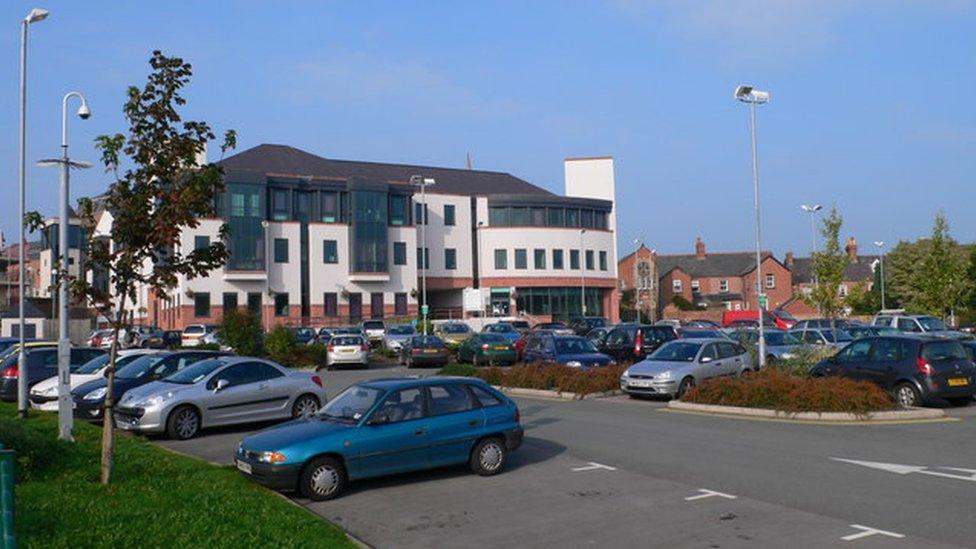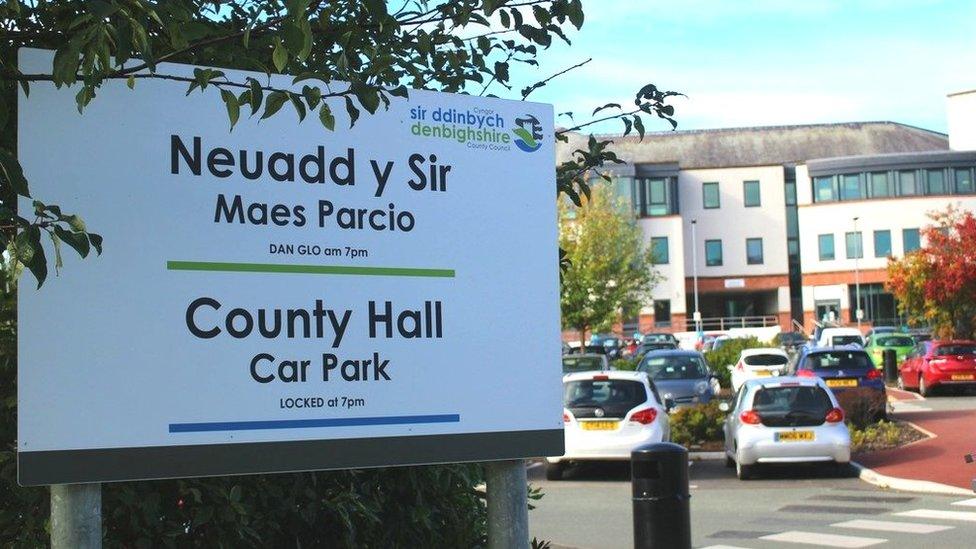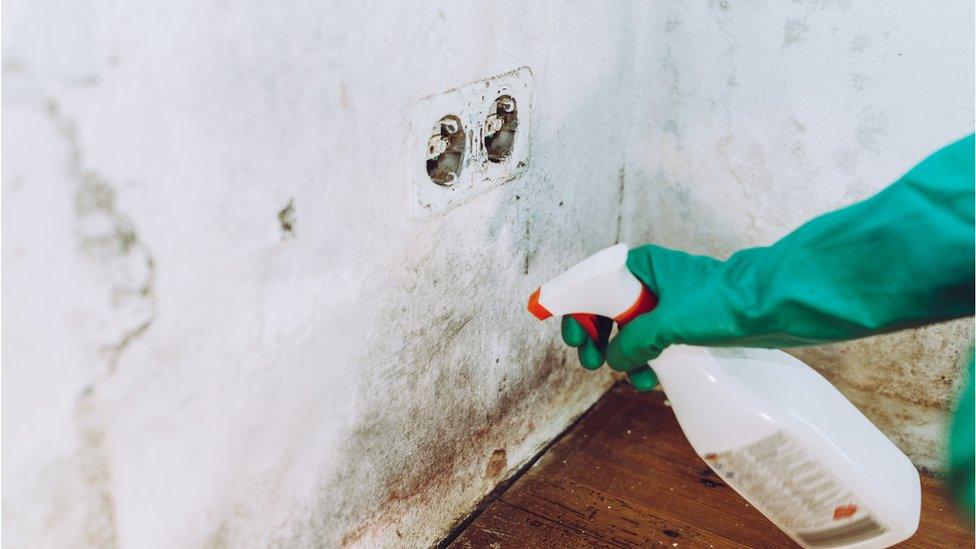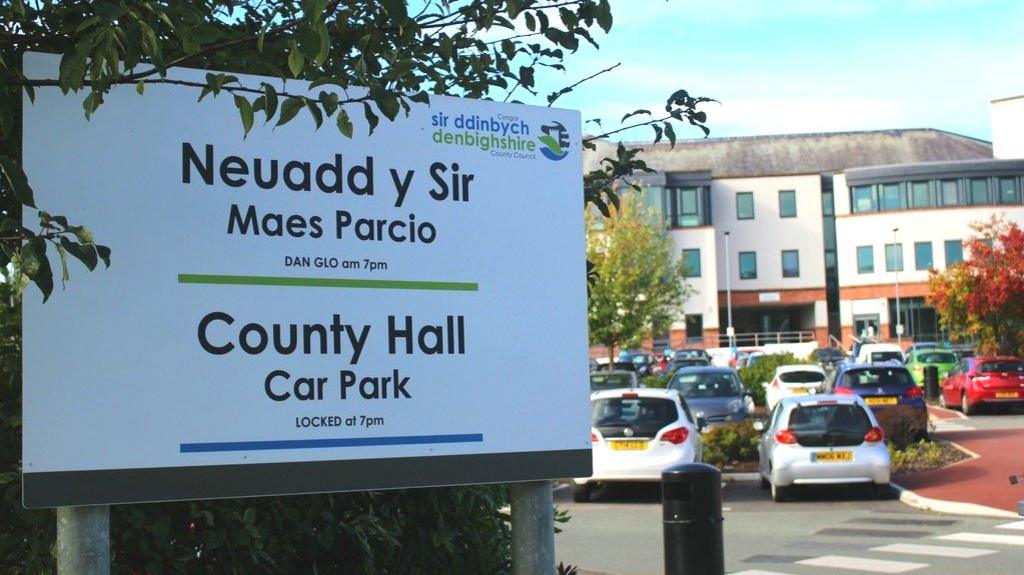Denbighshire: Avoiding bankruptcy is council priority, leader says
- Published

Council tax may be risen in Denbighshire amid the shortfall
Avoiding bankruptcy is the main priority of a north Wales council, a private letter from its leader has revealed.
Jason McLellan, leader of Denbighshire council, said the authority had forecasted a £20m to £26m budget shortfall in 2024-25.
He added the council would look at increasing council tax as well as service and job cuts.
Opposition leader Huw Hilditch-Roberts said the letter was worrying.
The council said pressures were due to rising costs and demand for services.
The letter comes almost six weeks after Birmingham city council, Europe's largest local authority, declared itself effectively bankrupt.
In the private letter from Mr McLellan to Denbighshire's councillors, he warned the list of potential savings included "everything we do".
He said the scale of problems was "unprecedented" and the requirement for savings was "much less, even in the period of austerity".

Huw Hilditch, opposition leader has requested a urgent meeting to discuss the council's plan going forward
Mr Hilditch-Roberts, who is an independent, said: "The email that all councillors received last week is the first thing we've heard about the Labour and Plaid cabinet that their priority is to stop the council going bankrupt."
He called for an urgent meeting so "all councillors can be put into the picture".
"When you see an email that mentions bankruptcy, you worry for staff; it is going to be a worry for residents; it is going to be a worry for councillors; it is going to be a worry for everyone," he said.
"The word bankruptcy is a serious situation, and that is why we need a meeting to discuss the seriousness of the situation."
Conservative councillor Brian Jones said he was under the impression the council's finances were in order upon re-election in February.
Council tax in the county was raised by 3.8% earlier this year, one of the lowest increases in Wales.
He said: "The question is what on earth's happened from January to the middle of October."
A spokeswoman for Denbighshire County Council said: "Like all local authorities across Wales, we are facing a series of continuing budget pressures due to rising costs and demand for services.
"It is estimated that delivering day-to-day services - including social services, waste collection and schools - will cost an extra £26m due to price increases, inflation, and pressure on demand.
"Despite an expected increase in funding of £5.6m (3%) by Welsh government, this still leaves a funding gap of £20.4m. The council must find additional money through savings and efficiencies, charges for services, increases in council tax, or by reducing or cutting services."
Related topics
- Published20 March 2023

- Published5 March 2024

- Published18 October 2018
